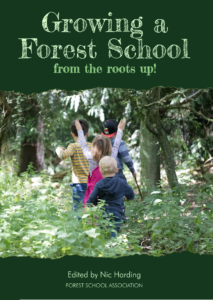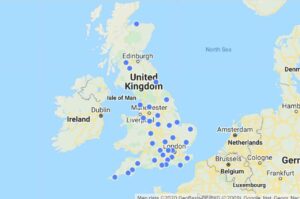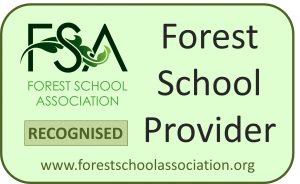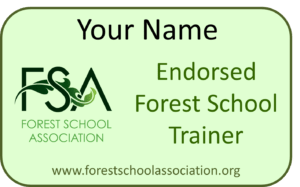By Jon Cree
When I started facilitating Forest School training back in 2007, I was both concerned and disgusted by the changing nature of the Oxford Junior Dictionary (OJD). Blackberry had become, “a handheld mobile device that provides internet access and email, telephone, and text-messaging facilities.” What’s more, in the revisions made to the OJD in 2015, words like acorn, catkin, cauliflower, chestnut, hamster, heron, herring, kingfisher, lark, otter and newt had disappeared. Don’t get me wrong, there are still many natural world-based words in the OJD, and new ‘technological and ‘indoor’ words come along all the time. But, that is not the point. In 2008, the head of children’s dictionaries at Oxford University Press, responding to criticism from some key authors such as Michael Rosenburg and Margaret Atwood, said, “when you look back at older versions of dictionaries, there were lots of examples of flowers for instance. That was because many children lived in semi-rural environments and saw the seasons. Nowadays, the environment has changed.” This, for me, is the reason to keep the outdoors and natural in the dictionary. It is symptomatic of the loss of nature connection and natural play which, as we know through many studies, is a key contributor to our decline in well-being and dare I say it, a nature connected culture. Surely something as influential as the OJD should see itself as shaper of understanding of the world, not purely a mirror of trends. Language and words are essential for this natural relationship – even through non-verbal words, expressed through the body, especially for those with speech difficulties.
Some of you may be thinking that I am an advocate for earth education, where there is a philosophy of not starting off with ‘names’ to understand the ecological principles on which our natural world depends. This misses the point. Earth education never said names were unimportant. What earth education is about is getting to really ‘know nature’ through rich, first-hand contact with it. Building a personal relationship with nature and in the key ecological concepts on which all life depends. Then the stories and names emerge! There is then a subtle shift in the way we think about and relate to an acorn, peat bog or hazel tree…words can enhance contact rather than replace it. Give children rich experiences in the natural world and a vocabulary full of mystery, possibility and adventure will emerge, even if their names don’t follow Linnaeus! If we lose the words and nouns, then there is no ‘active’ language on which we hook more words – which is the way we all manifest relationship.
So, it was with utter joy and sadness that I received this morning my copy of Robert Macfarlane and Jackie Morris’s book ‘Lost Words.’ It highlights in both a shocking and beautiful way some of the words that have gone from the OJD. Macfarlane’s poetry and Morris’s artistry really get to the heart of what ‘acorn’ means in the first two pages, ending with ‘wren’ – providing a rich A to Z of 20 creatures and plants. The pages really ‘animate’ each natural being. You can ‘feel’ that this has come from Macfarlane’s and Morris’s deep connections and contact with ‘acorn, adder, bluebell, etc.’ They have given real meaning to the words. Macfarlane has, in his words, cast 20 spells, while Morris has added ‘spirit.’ This is epitomised by the goldfinches flitting across the pages…bringers of hope…one of the few small bird successes. Indeed, they have increased by 50% over the last 10 years.
Storytelling, poetry and artistry are all important elements of ‘language’, helping us to connect to nature and making meaning of the world. I would say it is our way of relationship building – we are all story. That is what makes us human. The language of story and poetry is in our bones and when we start losing the spelling of names and words, we lose relationship. The nouns become dead on our tongues and in our bodies, without the language of metaphor that includes adjectives, verbs, adverbs, pronouns and connectives. Here is a poem that I have kept since the mid-nineties from a child of 7 sat in her ‘magic spot’ (some refer to this experience as a sit spot);
“I sit here under the great English monarch,
It speaks of time and the wrinkles remind me of my wise gran.
It is a home, refuge for the cheeky nut hider,
A breather of fresh clear air for the animal kingdom.
And will be here a long time after me.
Under its branches I feel peace, part and parcel of its life –
now and forever…….Oak tree”
The main reason this piece has stayed with me is the way the girl uttered the words after ‘magic spot’ time. It was like an incantation; indeed, all language needs to be spoken. Long before the written culture emerged, it was, and still is, the gesture and feeling of the ‘oral’ word that gave language its meaning. Without naming it until the end, this 7 year old really gave an account through a beautiful narrative of animism, bringing the tree to life and extolling her connection to ‘oak tree’. She had hung her thoughts and feelings onto the noun but expressed it using the language of love and connection. Likewise, only last week, at the 5th session of a Forest School programme, a 13 year old, who has delayed speech, very few words, a stutter and has never put more than a sentence together, was so deeply immersed in our Forest School site that she uttered four sentences. She has a love for all things New York, and said;
“I have found my New York here, hustling and bustling. I feel free. I love it. Can I be here every day of the week”.
You could feel from her smile, the movement of her tongue and the breath accompanying the words that she had a deep connection and love for the place. Being able to express this brought visible joy to her and the staff. It was the previous 5 weeks of active hands-on learning through play, talk round the fire and building of ‘community’ that had enabled her to express and make concrete her feelings for Forest School. With the utterance she had, as Seamus Heaney says so eloquently, ‘woven a gauze of sound around herself’.
Words, language and stories need to be kept alive and passed on, lest we lose our connections with the nonhuman and, I would be so bold as to say, ‘human’ world, our quality of life; and all that supports soulful living.
I commend Macfarlane’s and Morris’s “Lost Words” published by Penguin Books, 2017.





I can’t wait to get my hands on a copy. We provide magical moments but without the words how can we share them.